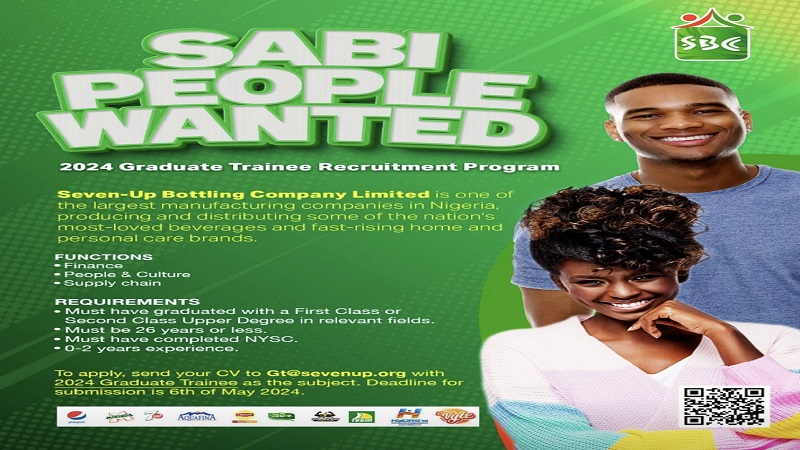Latest News on Our Blog

Why You Should Start Your Career Early
Do you know that some of the most well-known innovations have been the cause of starting out early? At the tender age of 18, Mary Shelley would write one of the first iconic science fiction novels: Frankenstein. Facebook founder Mark Zuckerburg had an interest in computers at the mere age of 12 when he tinkered to create a messaging program. We all watched as gymnast Simone Biles flipped her way to setting the American record for most gold medals to be won in Women's Gymnastics at the Olympic Games. She was only 20.
But while these are all inspirational and good motivators for your goals, you don't need to be able to do three backflips in a row or write an iconic novel in order to succeed in life.
What you need is to find what you love to do early and start paving your career.
Starting your career early reaps plenty of benefits that affect a person's life both internally and externally. Internally, we gain work ethic, which increases those many traits that are highly valued not just in the workplace, but in life.
Work ethic contains many benefits that contributes to a person's ability to succeed in life. It teaches:
- dedication when you're tired
- mental engagement to overcome obstacles
- perseverance to get the job finished
- how to manage time and deadlines
- responsibility and accountability
- incentives and rewards to working hard
- confidence in your abilities
- how to manage your money
Then there are the external benefits that young adults may receive from starting their career early. These are the easily seen or tangible benefits that you gain from hard work. They include:
- skills for future careers
- experience which makes you more marketable to businesses
- a more stable and secure lifestyle
- a steady income at an early age
- The opportunity to focus on the career rather than finding one.
- avenues for work networking for potential promotions and raises
- respect from peers, family, and elders
Beginning a career early helps young adults move forward more quickly in life as they don't have to puzzle out their intended degree for the first half of college. It inspires confidence in their abilities and can increase their love of what they are heading into, which further prompts them to do their job well.
Read on to discover why planning for your career early can be one of the best decisions you’ll ever have made.
- Starting Early Helps Identify Your Interests
Taking extra lessons on programming or creative writing, joining a cultural studies group or electronic music production club at school is all part of career planning. Discovering what you are really good at and enjoy doing helps you focus on pursuing a career in a field of your choice. Besides, paying more attention to their interests often helps aspiring entrepreneurs identify the niche for their business.
- It Prepares You Mentally and Intellectually for a Career
Deciding on a major that is in line with your personal interests and what you will potentially take up as a career will give you solid working knowledge of the trade. This knowledge will help you identify solid and realistic career goals, an important part of career planning.
Yes, it is entirely possible to major in classical music and end up becoming a trader. However, studying for four years about something close to the career you end up in still sounds more appealing, doesn’t it? With four years’ worth of knowledge, you’ll be more prepared to get your hands dirty in the field you’ve chosen. Studying a relevant major also prepares you mentally for the type of work you’ll expect to have when you graduate. This is also true because the internships you’ll apply for will also be targeted and focused on relevance to your major, giving you mental preparation for the eventual full-time job.
- It Provides You with Valuable Experience
Experience can teach you a wealth of lessons almost nothing else will: what you enjoy doing every day, what you cannot tolerate and what you would rather be doing.
Taking an internship as part of career planning is a perfect way to gain such experience. Other ways to gain interesting experience while still getting ahead of the rest include travelling, learning a new skill and writing about your interests.
- It Allows For Smoother Transition between Studies and a Career
Building up industry-specific knowledge and skills via internships is an integral part of career planning. Internships not only give students an edge over others during the job application process, it also helps reduce the shock when transitioning from studies to the workforce. During the internships, students will take on responsibilities full-time similar to those of employees. This will help acquaint them with the stress level, work ethics and the skills required when they officially enter the workforce.
- It Provides With Networking Opportunities
Internships also provide valuable networking opportunities. Business contacts, advice on the industry and possible graduate job offers are but some benefits of networking during your internship. This helps your career planning tremendously by increasing your chances of securing a job in the field you’ve chosen.
Tips to Jumpstart Your Career Early:
- Keep learning
To get ahead in your career during your twenties, develop a yearning for knowledge. Take a night class, find some online courses, or go to weekend seminars to help you develop new skills and knowledge that will set you apart from others in your age group. If you have a college degree, you're already one step ahead of the many who don't—but still, choose to continue learning after you receive your diploma and land your first job to stay ahead.
- Track your work accomplishments
It's much easier to update your resume, complete performance appraisals, request salary increases and have honest discussions with your supervisor about performance when you have a clear record of your professional accomplishments. As a manager,it was also helpful when my team tracked their accomplishments, as it was sometimes difficult to remember everything my employees accomplished over time, as is the case for many managers.
- Focus on effective communication
If you put even a little bit of energy into this skill, you'll be miles ahead of others who are just now entering the workforce. Sending emails that look like texts with shorthand and abbreviations is not considered appropriate professional communication at work. Also, because the younger generations utilize their phones, texting, and social media to communicate frequently, their ability to communicate effectively face-to-face has not fully developed.
If you learn how to communicate professionally across generations at work early on, you will stand out from your peers.Consider even taking an effective communication course to improve your skills and effectively communicate with others at work.
- Get a mentor
Mentors can help you navigate the nuances of the work environment and problem solve when needed. They can also help you deal with challenging relationships or guide you in how to increase your productivity and network. The list goes on as far as the value added in identifying a mentor early in your career. Mentor type relationships often develop naturally, or you might choose to seek out a mentor.
- Build your network
As you advance in your career, need a mentor or are looking to change jobs, you'll be glad you took this tip to heart. The sooner you begin networking, the sooner you'll begin building the web you can reach out to, and vice versa, to support and help you throughout your career.
- Show gratitude and be humble
People like to support and work with those who get that we're all in this together. When you show appreciation for others work and help, and also appreciate that you don't have all the answers, people will notice and be more willing to help you and recommend you to others. Be confident in your ability, but be humble in the fact that you don't know everything and can learn from others (especially early in your career).



